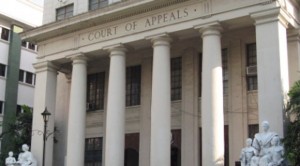The Court of Appeals (CA) has voided the decision of a Quezon City judge who awarded a 23.7-hectare prime property in Tandang Sora, Quezon City, to claimant Wilfredo Sumulong Torres.
The appellate court said Torres, who was branded in congressional inquiries as the alleged leader of a notorious land-grabbing and squatting syndicate, committed “extrinsic fraud” in a civil case that was initiated and decided in the lower court without the knowledge of the affected residents and land owners.
Denied an opportunity to challenge Torres, these people were “strangers’’ to that suit and therefore not covered by the judge’s ruling, it said.
The CA’s Former Special Former Special Sixth Division (correct) declared null and void the 1996 decision and 2011 orders issued by QC Regional Trial Court Branch 224 Judge Tita Marilyn Payoyo-Villordon, who granted Torres ownership of the property through the reconstitution of land titles under his name.
The Sept. 18 ruling handed a victory to a group of residents who had accused Torres of land grabbing in several middle-class subdivisions, including the K-Ville Townhomes Project in Sanville Subdivision, Morning Star Heights in Barangay Culiat, the Maria Montessori School and other private lots.
Torres then maintained that he inherited the properties from his mother, Dominga. At one point, the land dispute prompted a congressional investigation in 2011 in which the man, then in his mid-70s, was revealed to have been charged eight times for various offenses, some involving land cases dating back to the 1970s.
In a decision penned by Associate Justice Rodil Zalameda, the appellate court cited Torres’ failure to implead or sue the subjects of his claims case. The absence of such action was “tantamount to the lack of jurisdiction of the court,” it said.
The court ruled that since the actual occupants of the claimed land were never notified of the suit, “the order of reconstitution is null and void.”
“…[I]t is basic that no man shall be affected by any proceeding to which he is a stranger, and strangers to a case are not bound by judgment rendered by the court. It would be the height of inequity if we are to allow the petitioners and petitioners-in-intervention to be deprived of their respective properties without having their day in court,” the appellate court said in a 25-page ruling.
The petitioners went to the CA to challenge the orders of Payoyo-Villordon, whose ruling became the basis of the City Assessor’s office in voiding land title transfers to the affected property owners. In the case of Morning Star Heights, it led to the ejection of some residents.
The appellate court noted that Villordon had committed a “grievous error” in favoring Torres.
“(The) petitioners never had knowledge of the reconveyance and reconstitution suits. They only received a letter from the City Assessor’s office of the final judgment where they stand to lose their properties. Simply put, they were thus deprived of the opportunity to present their side or to protect their interests and rights,” it said.
Torres committed extrinsic fraud by excluding the affected residents from the suit and this failure to inform them of the civil case was “sufficient to justify the grant of a petition for annulment of judgment,’’ the CA ruling added.
In January 2012, the appellate court suspended indefinitely the implementation of Villordon’s ruling and prevented the eviction of 3,000 residents from the properties claimed by Torres. With a report from Inquirer Research
